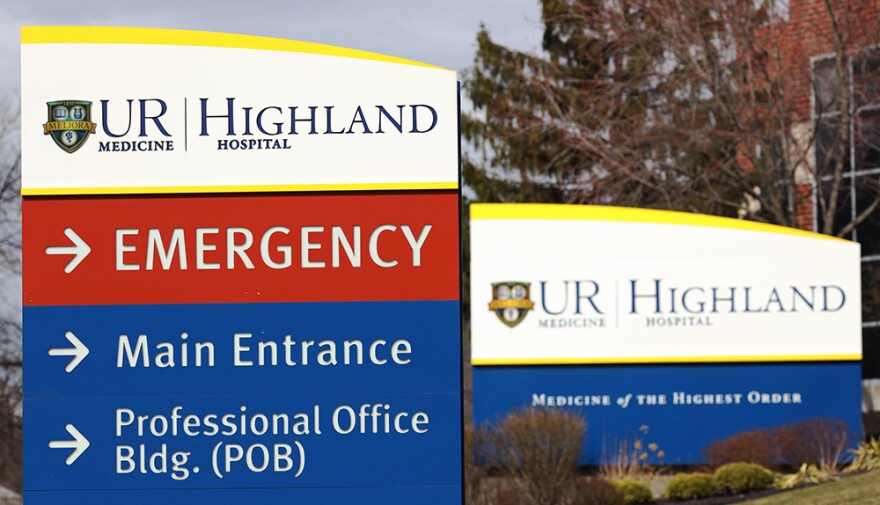Federal cuts to Medicaid could translate to a loss of about $20 million to Strong and Highland hospitals.
That’s a rough estimate, said Dr. David Linehan, CEO of the University of Rochester Medical Center. But the ballpark figure provides some idea of the challenges ahead.
“I don't want to sugarcoat that we have some difficult years ahead,” Linehan said. “But I think we're in a strong position to adapt to an ever-changing environment, and a dynamic landscape."
The federal cuts — part of the budget reconciliation or so-called “Big Beautiful Bill” signed into law by President Donald Trump this month — are expected to dramatically increase the number of underinsured and uninsured. An estimated 40,500 could lose coverage in the Rochester area alone, according to the Healthcare Association of New York State. Losses could increase when factoring in UR Medicine’s six rural hospitals.
Linehan joined UR President Sarah Mangelsdorf and Provost Nicole Sampson, speaking to nearly 3,000 faculty and staff during an internal webinar last week about how federal policy is affecting the university. A recording of the presentation and Q&A was shared publicly on Friday.
“Higher education and academic medicine are facing some real headwinds,” Mangelsdorf said. “I realize the headlines that you read or the news you hear about higher education and health care can be scary. They scare us, too.
“But it's important to remember,” Mangelsdorf continued, “that no two institutions are alike.”
URMC operates on a $3.8 billion budget. And while the core mission is patient care, Linehan said, “patient care is only part of what we do.”
“We have to protect our academic mission,” he said, “which also requires significant resources to sustain. ... We do impactful research, we train the workforce of the future, and we have to stay focused on that mission.”
Widespread layoffs and cuts that have been reported from Mass General to Stanford University are not in the offing here, officials said. While Mangelsdorf said the university "needs private funds now more than ever,” both she and Linehan said they are meeting the changes in a strong financial position.
WXXI News has separately requested sit-down interviews with Mangelsdorf, URMC and Rochester Regional leaders about the outlook for their respective institutions.
“It's difficult to estimate with complete certainty what impact these cuts will have on our health system,” Linehan said during the webinar. “When you think about the cuts, they essentially have shifted the financial burden of caring for the poor from the federal government to the state. And so how New York state will react to this is not entirely clear at this point.”
New York would need to come up with $3 billion to cover the federal cuts and maintain current coverage levels.
If left unchecked, the Medicaid cuts could eliminate coverage for more than 66,000 in the rural hospitals’ Finger Lakes and Southern Tier markets, according to the state association estimates.
“You know, these aren't just spreadsheets,” Linehan said. “We're talking about the health and well-being of our patients.”
The loss of coverage will make it more difficult for those affected to access primary and preventive care, he said, meaning that when they come into the hospital, it will most likely be in the emergency room, with a more involved condition or advanced illness. Both of which drive up the cost of treatment with uncertain reimbursement.
“There's concerns about widespread closure of rural hospitals. That's a national concern,” Linehan said, because rural hospitals tend to have a higher proportion of patients on Medicaid and lower financial reserves. “There's very few rural hospitals that can go it alone based on these headwinds.”
But he said the size and scope of the evolving UR Medicine system should buffer the fallout for F.F. Thompson, Noyes Memorial, Jones Memorial, St. James, Geneva General, and Soldiers & Sailors Memorial.
Congress set aside $50 billion to help rural hospitals. But it’s unclear how that money will be spent, and Linehan said the money is not sufficient to make up for what those hospitals will lose from Medicaid.




